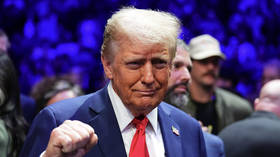US, Brazil continue spat over Iran deal
US Secretary of State Hillary Clinton has criticized Brazil's involvement in diplomatic negotiations with Iran and Turkey.
In a recent speech, Clinton said that the United States and Brazil have serious differences concerning Iran's nuclear program.
Clinton’s statements follow the escalating debate over Iran’s nuclear program and the recent Brazil brokered Iran-Turkey uranium fuel swap deal, and indicate American disapproval of Brazil’s willingness to seek a diplomatic solution outside of the United States.
The Brazil deal is nearly identical to previous proposals put forward by the US and other Western states, and is seen by many in the international community as a confidence building measure moving forward with Iran and its nuclear agenda.
“They [Brazil and Turkey] are independent sovereign countries and they’re not going to tolerate that the United States gives them orders,” said Robert Naiman, policy director at Just Foreign Policy.
The Brazil-Turkey deal on Iran is the same deal proposed by the United States in October. On April 20, US President Barack Obama sent a letter to Brazilian President Luiz Inácio Lula da Silva embracing Brazil and Turkey’s efforts to seek a diplomatic solution and a deal with Iran.
The letter from Obama specified exactly what he had hoped to see in a deal with Iran and laid out specifics that would make the deal work as a confidence building measure,all of which were fulfilled in the deal.
“This is the contradiction that the United States has not yet explained. Why you know they said before that this deal was good and now they say this deal is worthless and we have to go to sanctions,” said Naiman.
The US does not have the authority to dictate the conditions to become a global leader.
“Brazil and Turkey are not standing down to the United States bullying,” said Naiman.
The United States needs to secure nine of 15 UN Security Council votes to pass sanctions against Iran, it remains unclear if they can secure the necessary votes.
“Otherwise they [US] are going to have to compromise with Brazil and Turkey and pursue diplomacy,” said Naiman.












